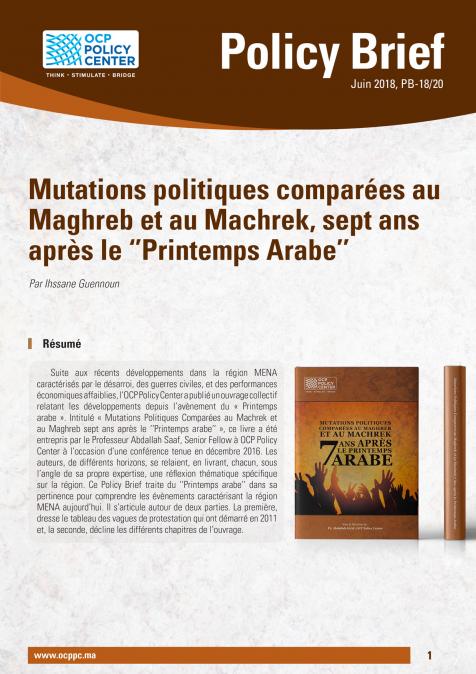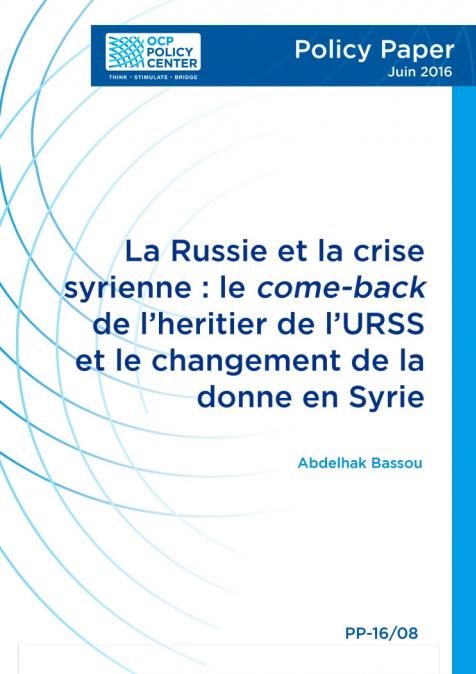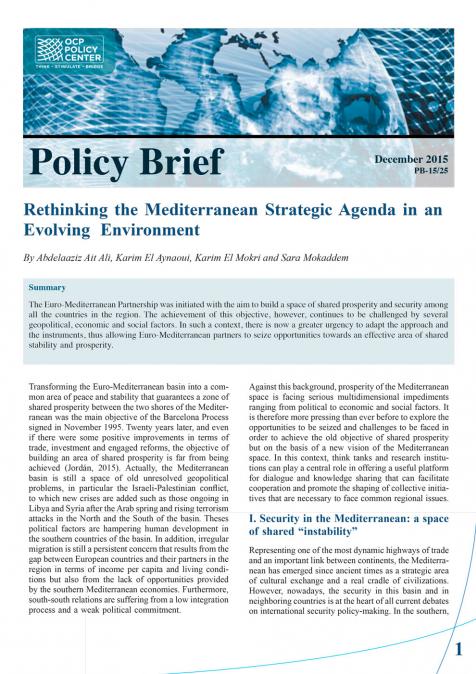Publications /
Policy Brief
Suite aux récents développements dans la région MENA caractérisés par le désarroi, des guerres civiles, et des performances économiques affaiblies, l’OCP Policy Center a publié un ouvrage collectif relatant les développements depuis l’avènement du « Printemps arabe ». Intitulé « Mutations Politiques Comparées au Machrek et au Maghreb sept ans après le ‘’Printemps arabe’’ », ce livre a été entrepris par le Professeur Abdallah Saaf, Senior Fellow à OCP Policy Center à l’occasion d’une conférence tenue en décembre 2016. Les auteurs, de différents horizons, se relaient, en livrant, chacun, sous l’angle de sa propre expertise, une réflexion thématique spécifique sur la région. Ce Policy Brief traite du ‘’Printemps arabe’’ dans sa pertinence pour comprendre les évènements caractérisant la région MENA aujourd’hui. Il s’articule autour de deux parties. La première, dresse le tableau des vagues de protestation qui ont démarré en 2011 et, la seconde, décline les différents chapitres de l’ouvrage.









